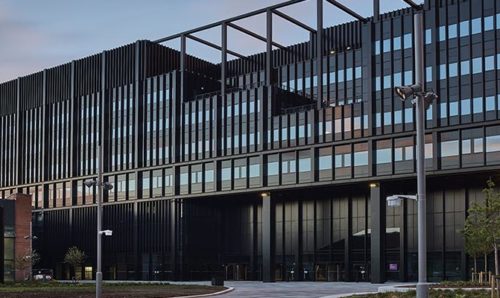Here and now – the people of FSE
Robotics and AI UOM life 24th October 2019
It’s hard to imagine a more diverse group of thinkers than the students, researchers and academics here at the Faculty of Science and Engineering.
In our labs, workshops and study spaces, you’ll find chemists and chemical engineers; computer scientists and mathematicians, electrical, electronic, mechanical, aerospace and civil engineers; physicists and astronomers; earth, environmental and materials scientists and, of course, the next fashion business leaders. This sort of academic diversity deserves to be celebrated – and we’re doing just that with our campaign, People of FSE.
We’re introducing our colleagues and shining a light on their work and research. When you work somewhere where an involvement in industry-leading research and huge breakthroughs is the norm, it can be easy to lose sight of the people behind the achievements.
We often look back on our Faculty’s esteemed heritage and celebrate our most famous alumni, but there are countless people across FSE who are making an equally important impact today. People of FSE celebrates the humans taking on the grand challenges. Here are just a few of them:
Dr Vidyadhar (Viddy) Peesapti
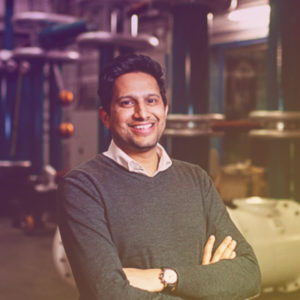
Dr Vidyadhar (Viddy) Peesapti is a name with which regular readers will be familiar. The Research Fellow in High Voltage Engineering at the Department of Electrical and Electronic Engineering can be found most days at the University’s High Voltage lab. Here he conducts tests designed to put the country’s electrical infrastructure through its paces. As he explained in a previous post, the UK’s electrical grid is now half a century old and “we don’t know how it will cope with the energy changes and uncertainties of the future”. The tests conducted in the HV Lab help provide some of the answers.
“I love my work today, and I look forward to coming to work every day. I think this is the biggest win I could get from my Degree,” Viddy explains.
Aránzaza Carmona Orbezo

Aránzaza Carmona Orbezo is part of the PhD Electrochemistry Research Group at the Department of Chemistry. She admits that after three years at The University of Manchester, it’s tough to think of just one story to share – but remembers as a stand-out moment a Women in Graphene event hosted at the National Graphene Institute. “During those two days I felt really encouraged, because I realised that I was not alone with my struggles and that there is a group of people I can count on whenever I need career or personal advice.”
Aránzaza’s research focuses on the desalination of seawater using a process called capacitive deionization. It is a cost-effective solution to the challenge of safe water scarcity, as it stores the salt ions to be able to obtain a low salinity water stream while also recovering much of the used energy.
Of her time at FSE, Aránzaza says: “What excites me about science and engineering are the possibilities – how little changes could have a great impact; how research can really have an impact on our everyday lives.” She adds: “STEM is what drives the biggest changes in humanity and without it we would not be able to understand and improve our surroundings.”
Mbithe Nzomo
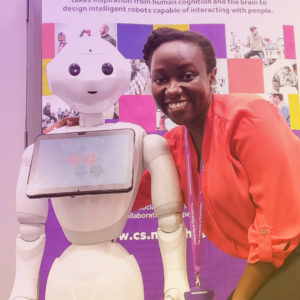
Mbithe Nzomo is studying for an MSc in Advanced Computer Science at the Department of Computer Science. Her specialism is AI technology – so if you want to know when the robots will take over, she’s the person to ask! In fact, Mbithe has been working on her research at the Cognitive Robotics lab alongside her good buddy Pepper the robot.
“My project uses deep learning to help social robots like Pepper learn how to start and end interactions with humans,” she explains.
Dr Tuomas Sahlsten
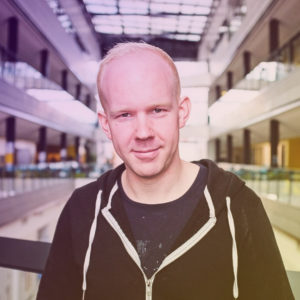
Dr Tuomas Sahlsten is a Lecturer in Pure Mathematics at the Department of Mathematics. While at primary school in Finland, he became fascinated with the square root of two – which is an irrational number that cannot be expressed as a fraction. “It made no sense for me and it made me frustrated. I wanted to understand why.”
This frustrated fascination led him to Manchester, where he has sat through numerous conferences on the subject of irrational numbers and “I still don’t feel like I am any wiser than I was in primary school about the square root of two”.
But that curiosity was not fruitless. “What has happened is that I now see how prevalent mathematics is everywhere and how these innocent curiosities of understanding the square root of two have led to innovations that now influence nearly every corner of our modern life,” Tuomas explains.
Mary Slipper
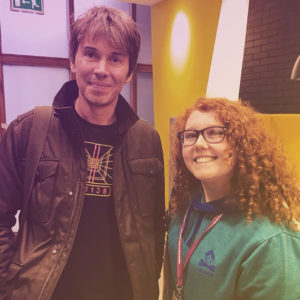
Mary Slipper is studying Theoretical Physics at the Department of Physics and Astronomy and has just begun the third year of her degree. As if that wasn’t enough, she’s also the Recruitment Manager for the University’s Physics Outreach Group.
“We go to schools to deliver workshops about all different areas of Physics, which aims to excite and interest young children,” Mary says. “I think science communication is really important, and I hope that by going into schools I might be able to encourage other girls like me that they can be scientists one day!”
Mary is planning to move on to studying Cosmology and Particle Physics. “Knowing that I can use my science degree in a vast array of fields is wonderful, and I’m looking forward to seeing where Physics takes me.”
You can follow our People of FSE campaign on Instagram and Twitter by searching #PeopleofFSE.
If you enjoyed this post, be sure to subscribe on our homepage to keep up to date with the latest posts from The Hub.
Words – Hayley Cox
Images – The University of Manchester
ChemistryComputer ScienceElectrical and Electronic Engineeringhigh voltage labMathematicsPeople of FSEPhysics and Astronomy


